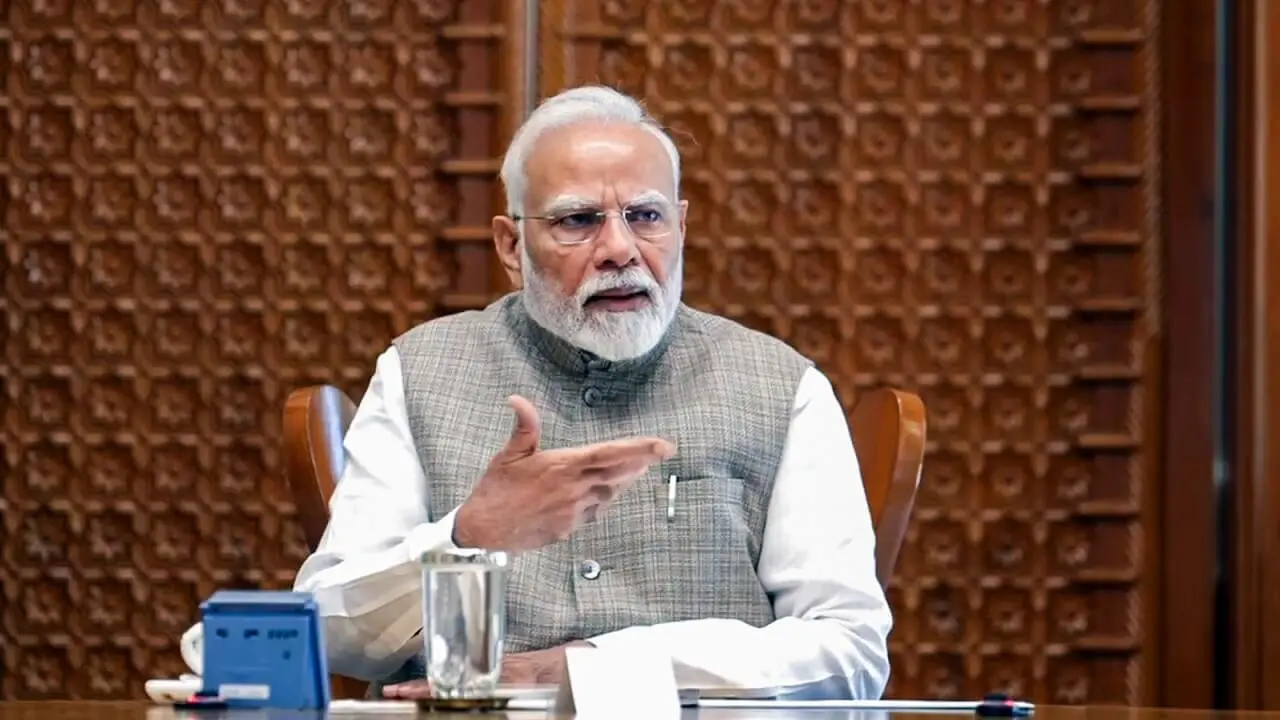
Introduction: A Firm Message from India
On May 12, 2025, Prime Minister Narendra Modi made headlines with a strong and decisive message aimed directly at Pakistan. In the wake of a devastating terror attack in Jammu and Kashmir's Pahalgam region, Modi outlined a firm new doctrine under the codename “Operation Sindoor.” This doctrine doesn’t just represent retaliation—it’s a bold statement that India will no longer tolerate terror infrastructure across the border.
Backdrop: The Pahalgam Attack
Earlier this year, a major terror strike in Pahalgam resulted in the loss of several Indian lives, reigniting public anger and bringing India’s counterterrorism policies under the microscope. The government responded swiftly, launching a series of precision drone and missile strikes that targeted suspected terrorist camps in Pakistan-occupied territory.
According to Modi, these actions were not the end but a “pause”—a strategic suspension of force that hinges on Pakistan’s response. The implication is clear: unless Pakistan takes verifiable steps to dismantle its terror networks, India reserves the right to resume military operations.
Operation Sindoor: A New Military Doctrine
Modi’s speech signaled the formal shift in India's counter-terrorism doctrine. Unlike past operations that were limited or reactive, Operation Sindoor positions India as a preemptive and assertive force against terrorism. It redefines deterrence—not just through threats but through demonstrable capability and political will.
The Prime Minister emphasized that India will not be held hostage by diplomatic inertia or international pressure. He made it evident that India's sovereignty and the safety of its citizens will be protected at any cost.
Targeting the Roots of Terror
Perhaps the most striking part of Modi’s address was his direct reference to Pakistan’s Punjab province, specifically Bahawalpur and Muridke—locations widely known as operational hubs for extremist groups like Jaish-e-Mohammed and Lashkar-e-Taiba. These groups have been linked to numerous international terror incidents, including the 2008 Mumbai attacks and even global events like 9/11.
Modi accused these areas of functioning as "terror universities" and called out Pakistan's failure to shut them down. He argued that these institutions don’t just endanger India—they’re a threat to the world.
International Implications
Modi’s ultimatum has international ramifications. By taking a more open and aggressive stance, India is pushing the global community—particularly the United Nations and allies like the United States—to reconsider their diplomatic approach to Pakistan.
It also puts Pakistan in a diplomatic bind. On one hand, global powers may push for de-escalation. On the other, Modi has clearly stated that India’s restraint is conditional on action—not promises.
The Domestic Reception: Unity Through Strength
Domestically, Modi’s message has been well received across political lines. Even critics have acknowledged the clarity and firmness of his leadership in this crisis. The public, weary of repeated terror attacks and fruitless talks, largely supports this assertive posture.
Security analysts have also endorsed the logic behind Operation Sindoor, arguing that decisive action deters further violence more effectively than drawn-out diplomacy.
Pakistan’s Dilemma: Action or Consequence
While Pakistan has historically denied links to terrorist groups, international watchdogs and intelligence reports have consistently highlighted the presence of extremist camps within its borders. Modi’s direct address leaves little room for ambiguity. For Pakistan, this is not just a diplomatic challenge but a test of political will and international credibility.
Failure to act decisively could not only trigger another round of Indian strikes but could also risk deeper international isolation, including stricter sanctions and reduced foreign aid.
Conclusion: A Defining Moment in South Asian Geopolitics
Prime Minister Modi’s recent warning marks a defining shift in India’s security narrative. No longer content with reactive measures, India has now embraced a doctrine of preemption, deterrence, and assertive defense. This shift does not just aim to punish acts of terror—but to prevent them entirely.
As South Asia watches with bated breath, one thing is clear: the era of strategic patience is over. The onus is now on Pakistan to make a choice—dismantle the infrastructure of extremism, or face the consequences of continued inaction.
